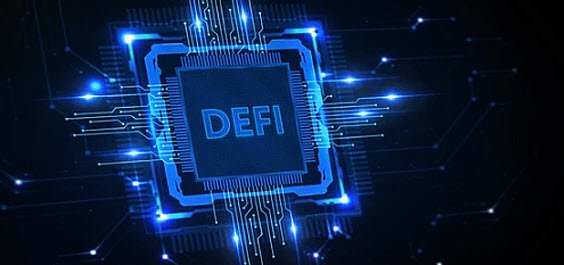Accredited InvestorsAltcoinAnatoli UnitskyAnti-Money Laundering (AML) In CryptoAPIArbitrageArtCoin TokenArticle DirectoryASICAuction Terminology GlossaryBasics of Stock Market InvestingBear MarketBest Crypto Payment Provider In the WorldBitcoinBlockchainBlockchain ConfirmationBlockchain Consensus MechanismBlockchain ForkBlockchain GlossaryBored Ape Yacht ClubBuild a Business That OutperformsBull MarketBuying SkyWay SharesByzantine Fault Tolerance (BFT) ExplainedCasascius CoinCentral Bank Digital Currency (CBDC)Centralized Crypto ExchangeCoinCoinsetCold WalletCollateralCommodity Futures Trading Commission (CFTC)Cross-Chain TechnologyCRUCrypto ExchangeCrypto GlossaryCrypto JokesCrypto Terms to KnowCrypto TickerCryptocurrencyCryptographyCryptojackingCryptounit BlockchainCryptounit GlossaryCryptounit ProgramdApp (Decentralized Application)Dead CoinDecentralized Exchange (DEX)Decentralized Finance (DeFi)Difference Between Bitcoin and EthereumDifferent Ways of Investing MoneyDigital CurrencyDistributed LedgerDo Your Own Research (DYOR)Dollar Cost Averaging (DCA)Dow Jones Industrial Average (DJIA)EncryptionERC-20ERC-721EthereumEvoScentFear Of Missing Out (FOMO)Fear, Uncertainty and Doubt (FUD)Fiat MoneyFNT Fintech CompanyGenesis BlockGlobal Unit PayGlossary of Banking TermsGlossary of Business TermsGlossary of Financial TermsHalvingHODLHot WalletHow Do I Start InvestingHow Rich is Satoshi Nakamoto?How to Create a BlockchainHow to Find Private InvestorsHow to Get Into FintechHow to Program Smart ContractsI Am Thrilled to Be a Part of This Global ProjectInitial Coin Offering (ICO)Initial Public Offering (IPO)Initial Token Offering (ITO)Innovation Basalt TechnologyInnovative Transportation TechnologiesInternational Bank Account Number (IBAN)Investing in Gold Mining StocksInvesting in Gold MiningJagerJoy of Missing Out (JOMO)Know Your Customer (KYC)LedgerLiquidity in CryptocurrencyMaker and Taker Fees in Crypto TradingMarket Capitalization (Market Cap)Meme CoinMetal Credit CardMetaMaskMillenials Now Have Access to Generational WealthMy Best Investment EverNew Digital EvolutionNFT GlossaryOff-Chain TransactionsOn-Chain TransactionsOpen Edition NFTPeer-to-Peer (P2P)Personal Loan GlossaryProbably the Best STO on the MarketProof of Stake (PoS)Real Estate Glossary of TermsReal Estate Investing GlossaryRebase TokenSecurities and Exchange Commission (SEC)Security Token ExchangesSecurity Token Offering (STO)Soulbound Decentralized Identities for Security TokensSoulbound ID Launch by Stobox Proves a SuccessSoulbound TokensStoboxStock Market GlossaryTestimonialsTether Platform and Token (USDT)UnitEx ExchangeUnitsky String TechnologiesUNTBUSDUValidatorWe Started Investing When We Were 25What are Blue Chip NFT?What are Blue Chip Stocks?What are Crypto Assets?What are Crypto Smart Contracts?What are CryptoPunks NFT?What are Digital Assets?What are Digital Collectibles?What are Gas Fees?What are Gas Wars?What are Hashmasks?What are Non Fungible Tokens?What are Non-Sufficient Funds (NSF)?What are Soulbound Tokens (SBT)?What are Stablecoins in Crypto?What are Transactions Per Second (TPS)?What are Utility NFTs?What are Utility Tokens?What Does Burning Crypto Mean?What Does Diamond Hands Mean?What Does Paper Hands Mean?What Does To The Moon Mean?What Does WAGMI Mean?What Happened to Satoshi Nakamoto?What is a 51% Attack?What is a Baby Boomer?What is a Backlink?What is a Banner?What is a Barcode?What is a Bid-Ask Spread in Crypto?What is a Block in Blockchain?What is a Block Reward?What is a Blockchain Address?What is a Blockchain Node?What is a Blockchain Oracle?What is a Blog?What is a Bond?What is a Bot?What is a Broker?What is a Business Accelerator?What is a Cash Cow?What is a Commercial Bank?What is a Commodity?What is a Con?What is a Credit?What is a Credit Limit?What is a Credit Rating?What is a Crypto Airdrop?What is a Crypto Bridge?What is a Crypto Scam?What is a Crypto Token?What is a Crypto Wallet?What is a Crypto Whale?What is a Crypto Winter?What is a Cryptocurrency Public Ledger?What is a Cryptocurrency Roadmap?What is a DAO?What is a Dark Pool?What is a Day Trader?What is a Dead Cat Bounce?What is a Default?What is a Derivative?What is a Digital Credit Card?What is a Fiscal Quarter?What is a Fungible Token?What is a Governance Token?What is a Grace Period?What is a Hard Fork?What is a Hot Wallet?What is a Hybrid Blockchain?What is a Hybrid PoW/PoS?What is a Joint Account?What is a Market Cap?What is a Merkle Tree in Blockchain?What is a Mining Farm?What is a Nonce? What is a PFP NFT?What is a POS System?What is a Prepaid Card?What is a Private Blockchain?What is a Private Key?What is a Public Blockchain?What is a Public Key?What is a Reserve Currency?What is a Ring Signature?What is a Routing Number?What is a Rug Pull in Crypto?What is a Safe Deposit Box?What is a Satoshi?What is a Security Token?What is a Seed Phrase?What is a Shitcoin?What is a Sidechain?What is a Soft Fork?What is a Spot Market?What is a State Bank?What is a SWIFT Code?What is a Tax Identification Number (TIN)?What is a Time Deposit?What is a Transaction Account?What is a Variable Interest Rate?What is a Virtual Assistant (VA)?What is a Virtual Card?What is a Virtual Currency?What is a Visa Card?What is a Whitelist in Crypto?What is a Whitepaper?What is Accounts Payable (AP)?What is AMA in Crypto?What is Amortization?What is an Accrual?What is an ACH Transfer?What is an Actuary?What is an Addendum?What is an Algorithm?What is an Angel Investor?What is an Annuity?What is an Asset?What is an ATM?What is an Atomic Swap?What is an Audit?What is an Avatar?What is an EIN?What is an Embargo?What is an Entrepreneur?What is an IDO (Initial Dex Offering)?What is an Interest Rate?What is an Internet cookie?What is an Investment Bank?What is an NFT Drop?What is an NFT Floor Price?What is an Ommer Block?What is an Orphan Block?What is an Outstanding Check?What is an Overdraft?What is Artificial Intelligence (AI)?What is B2B (Business-to-Business)?What is B2G (Business-to-Government)?What is Bartering?What is Bitcoin Dominance?What is Bitcoin Pizza Day?What is Blockchain Immutability?What is Blockchain Used For?What is BRICS?What is Business-to-Consumer (B2C)?What is C2C (Customer to Customer)?What is Capitalism?What is Catfishing?What is CFD Trading?What is Check Kiting?What is Cloud Mining?What is Communism?What is Content Marketing?What is Decentralization in Blockchain?What is DeFi in Crypto?What is Delisting?What is Depreciation?What is Digital Marketing?What is Diversification?What is Double Spending?What is Dumb Money?What is Dumping?What is Earnings Per Share (EPS)?What is Economics?What is Email Marketing?What is Equity?What is Etherscan?What is Fintech?What is Foreign currency?What is Forex?What is Fundamental Analysis (FA)?What is GameFi?What is Generative Art NFT?What is Gwei?What is Hard Currency?What is Hash Rate?What is Hashing in Blockchain?What is Inflation?What is Initial Game Offering (IGO)?What is Interest?What is Interest Income?What is Mainnet?What is Mastercard?What is Metaverse in Crypto?What is Mining in Cryptocurrency?What is Minting NFT?What is Mobile Banking?What is Money Laundering?What is NFT Alpha?What is NFT Metadata?What is NFT Rarity?What is NGMI Meaning?What is Nominal Interest Rate?What is Online Banking?What is Open-End Credit?What is OpenSea NFT Marketplace?What is Personal Identification Number (PIN)?What is Play-to-Earn?What is Polygon?What is Proof of Authority (PoA)?What is Proof of Work (PoW)?What is Public Key Cryptography?What is Pump and Dump?What is Quantum Computing?What is Refinancing?What is Retail Banking?What is Ripple?What is Sharding?What is Slippage in Crypto?What is Smart Money?What is Solvency?What is Soulbound ID?What is SSL?What is Staking in Cryptocurrency?What is Technical Analysis (TA)?What is Testnet?What is the Ask Price?What is the Better Business Bureau (BBB)?What is the Bid Price?What is the Dark Web?What is the InterPlanetary File System (IPFS)?What is the Gold Standard?What is the Lightning Network?What is the Prime Rate?What is the Sandbox?What is the Secondary Market?What is the World Bank?What is Tier 1 Capital?What is Tokenomics?What is TRC-20?What is Universal Banking?What is Unspent Transaction Output (UTXO)?What is Usury?What is Volatility in Crypto?What is Wash Trading?What is Web3?What is Whisper?What is XRP?What is Zero-Knowledge Proof (ZKP)?Who is Beeple?Who is Satoshi Nakamoto?Who is Vitalik Buterin?Why Tokenization is a Safe HavenWhy You Should Try Your Hand at Trading
Decentralized Exchange (DEX)
- Home
- Cryptounit Glossary
- Decentralized Exchange (DEX)
A decentralized exchange is a digital currency exchange that allows users to acquire cryptocurrencies directly without the involvement of banks, government agencies or other intermediaries.

With the creation of bitcoin in 2008, there was a need to construct an exchange platform for users to trade cryptocurrencies. Centralized Crypto Exchanges facilitated these transactions, but they were obvious targets for hackers.
DEX varies from a standard centralized exchange in that a typical transaction requires a third-party business that holds user funds and monitors the security and transfer of assets between two parties.
DEXs are critical components of cryptocurrency transactions because they allow blockchains or secured ledgers to assume the responsibility of assuring secure trades rather than a centralized system of banks, stock brokers, and government.
How a Decentralized Exchange Works
A blockchain, or distributed ledger, replaces the third party in a decentralized trade. By transferring crucial activities to a blockchain, the underlying technology may help to remove single points of failure, giving users greater control over their assets and enabling safer and more transparent trade.
Smart contracts are the foundation of a decentralized exchange. They use liquidity pools to allow token holders to lock their cryptocurrencies into DEX to facilitate trading orders while also earning returns on their cash locked in these pools. Crypto traders essentially interact with smart contracts built on the blockchain environment while trading on a DEX.
Types of Decentralized Exchanges
- Automated Market Makers (AMM) decentralize the process and allow users to construct a market on a blockchain, as opposed to traditional market-making, in which corporations give an exact pricing and a tight spread on an order book. A trade requires no counterparty since the AMM just interacts with a blockchain to "create" a market. Users trade with smart contracts and supply liquidity instead of interacting directly with another individual, exchange, or market maker. Unfortunately, there are no order types on an AMM because prices are established algorithmically, resulting in a market order.
- Order Book DEXs are more traditional. This system keeps track of all open orders for trading different pairings of assets. The buy and sell orders indicate a trader's willingness to bid on and sell certain assets at a specific price. On the Order Book DEX, these bid and ask prices are properly matched. Order book DEXs are further classified as on-chain order books and off-chain order books. On-chain retains its information on the chain and allows traders to leverage their holdings by borrowing money from lenders on their platform. Off-chain store order books enable for blockchain transaction settlement.
- DEX Aggregators aggregate multiple trading pools. Their major advantage is that they can boost liquidity for traders, especially those wishing to diversify their holdings or trade smaller tokens. These aggregators function similarly to search engines in that they assemble and aggregate information and data from several exchanges to provide consumers with additional possibilities.

Benefits of Using a Decentralized Exchange
- Vast Variety - If you want to locate a hot token in its early stages, DeFi is the place to go. DEXs provide an almost endless variety of tokens, ranging from the well-known to the strange and completely random. Because anybody may develop an Ethereum-based token and a liquidity pool for it, there will be a wider range of projects, both verified and unvetted.
- No Know Your Customer (KYC) Verification - Since DEXs are trustworthy, user funds, privacy, and the limited personal data they provide are properly protected. Users of decentralized exchanges may access a DEX quickly and securely without having to register for an account on the exchange, go through identity verification, or divulge any personal information.
- No Counterparty Risk - Decentralized exchanges can lessen the danger of theft and fund loss due to hacking since users do not have to transfer their assets to an exchange or to a third party. DEXs can also help to avoid price manipulation and artificial trade volume, as well as provide users with some anonymity owing to a lack of KYC cryptocurrency standards and regulations.
- Utility in the Developing World - In developing economies, where a strong banking system might not be accessible, DEXs are becoming more and more popular due to peer-to-peer financing, quick transactions, and anonymity they provide. A DEX allows trading by anybody with a smartphone and an internet connection.
- Reduced Security Risks - It's likely that decentralized exchanges are safer than centralized ones. This is because smart contracts and decentralized applications, which automate transactions, take control of assets rather than a single entity. In other words, everything is managed by users, making it incredibly impossible for a hacker to access a centralized collection of assets and steal them.
Potential Downsides
- Smart Contract Vulnerabilities - Inadequately designed smart contracts might cause issues on a DEX. A smart contract is only as intelligent as the person that developed it, and there is no assurance that it will always function as intended.
- No Ability to Recover - DEXs, in contrast to centralized exchanges, are essentially incapable of recovering lost, stolen, or misplaced assets. Users are unable to retrieve data or receive their assets back since there is no KYC procedure in place and no way to undo a transaction in the event that a private key is lost or an account is compromised.
- Low Liquidity - Many traders choose centralized platforms that provide a larger liquidity pool, a wider range of instruments, and order types. Because they are newer and smaller, with a smaller potential customer base, decentralized exchanges typically have lesser liquidity than centralized platforms.
Related Articles

dApp
One of the main advantages of dApps is their security. Because they are built on decentralized systems, they are less susceptible to hacking, data breaches, and other security threats that...

Decentralized Finance (DeFi)
There are several forms of DeFi services within these three categories. Funding protocols, software development tools, subscription payment methods, and data analysis...

What are Crypto Smart Contracts?
Assume you want to trade one type of cryptocurrency for another and you find someone willing to...

Liquidity
Assets that are difficult to convert to cash are not liquid, whereas those that may be exchanged immediately are considered liquid.
- Home
- Cryptounit Glossary
- Decentralized Exchange (DEX)